Price-cutting competition would reduce the quality of travel in China, a Taiwanese researcher said on Thursday after China’s Fujian Provincial Government rolled out incentives to attract Taiwanese tourists.
Cash bonuses of 80,000 yuan (US$11,250), 50,000 yuan and 30,000 yuan would be given annually to the top three travel industry operators who attract the most Taiwanese to travel to Fujian Province’s Nanping City, the provincial government said on Tuesday.
Taiwanese would rather travel to other countries instead of China, where they would put themselves in danger, Taiwan Thinktank researcher Wu Se-chih (吳瑟致) said, adding that the bonuses reflect the fact that traveling to Fujian does not appeal to Taiwanese.
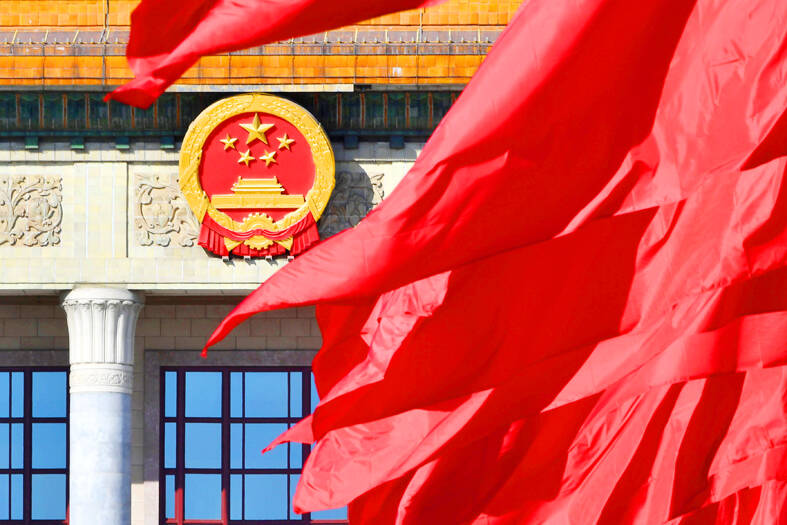
Photo: Reuters
The Fujian Provincial Government expects to attract more Taiwanese through the travel industry, but the businesses are likely to compete for the bonuses via a price war, which would certainly lead to a decline in quality, Wu said.
The number of Taiwanese visiting China has plummeted, as the government had upgraded its travel warning and banned group tours to the country following Beijing’s announcement of its 22 guidelines “to punish Taiwanese independence diehards,” he said.
The Fujian Provincial Government is trying to boost the number in a move to step up cross-strait integration and exchanges, but such “united front” tactics might not work if the number of Taiwanese visiting the region continues to decline, he added.
The effort has four aspects: promote financial cooperation with Taiwan, encourage Taiwanese to work in Fujian, expand judicial services for Taiwanese arbitration institutions, and facilitate life and travel in Fujian for Taiwanese, Wu said.
For example, Taiwanese travelers could make mobile payments via digital cards provided by Industrial Bank through China UnionPay, while 60 banking and insurance institutions dedicated to providing financial services for Taiwanese people and companies would be set up.
To facilitate international financing for Taiwanese enterprises, qualified companies operating in Fujian could borrow from external sources at banks instead of at foreign exchange bureaus.
Taiwanese medical department students whose educational background has been certified by the Chinese Service Center for Scholarly Exchange could sign up for China’s National Medical Licensing Examination in Fujian after they have worked in a qualified hospital in the province for a year and passed assessments.
In Zhangzhou City, 240 job vacancies would be provided annually for Taiwanese nurses in the next five years, with an onboarding bonus of 3,000 yuan to 4,000 yuan, as well as an annual bonus of 1,000 yuan to 10,000 yuan in accordance with their job tenure and competency in Taiwan.
Taiwanese civil and commercial arbitration institutions would be allowed to establish branches in Xiamen City to run operations involving Hong Kong, Macau and foreign countries.
The Mainland Affairs Council on Tuesday said Beijing continues to initiate preferential policies and measures for Taiwan to draw in Taiwanese people and companies and boost its flagging economy.
However, Taiwanese do not agree with Beijing’s autocratic regime and might not find these preferential measures of much interest, it said.
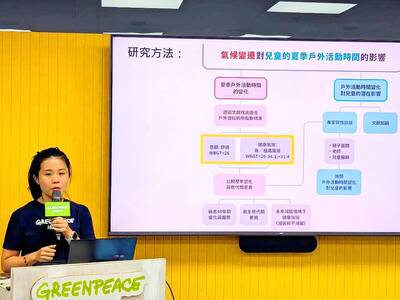
The government should improve children’s outdoor spaces and accelerate carbon reduction programs, as the risk of heat-related injury due to high summer temperatures rises each year, Greenpeace told a news conference yesterday. Greenpeace examined summer temperatures in Taipei, New Taipei City, Taoyuan, Hsinchu City, Taichung, Tainan and Kaohsiung to determine the effects of high temperatures and climate change on children’s outdoor activities, citing data garnered by China Medical University, which defines a wet-bulb globe temperature (WBGT) of 29°C or higher as posing the risk of heat-related injury. According to the Central Weather Administration, WBGT, commonly referred to as the heat index, estimates
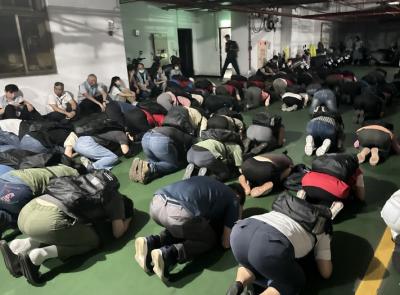
Taipei and other northern cities are to host air-raid drills from 1:30pm to 2pm tomorrow as part of urban resilience drills held alongside the Han Kuang exercises, Taiwan’s largest annual military exercises. Taipei, New Taipei City, Keelung, Taoyuan, Yilan County, Hsinchu City and Hsinchu County are to hold the annual Wanan air defense exercise tomorrow, following similar drills held in central and southern Taiwan yesterday and today respectively. The Taipei Mass Rapid Transit (MRT) and Maokong Gondola are to run as usual, although stations and passenger parking lots would have an “entry only, no exit” policy once air raid sirens sound, Taipei
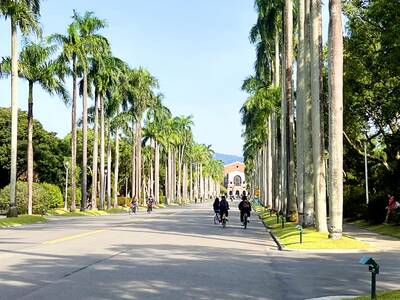
Taipei placed 14th in the Quacquarelli Symonds (QS) Best Student Cities 2026 list, its highest ever, according to results released yesterday. With an overall score of 89.1, the city climbed 12 places from the previous year, surpassing its previous best ranking of 17th in 2019. Taipei is “one of Asia’s leading higher-education hubs,” with strong employer activity scores and students “enjoying their experience of the city and often keen to stay after graduation,” a QS staff writer said. In addition to Taipei, Hsinchu (71st), Tainan (92nd), Taichung (113th) and Taoyuan (130th) also made QS’ list of the top 150 student cities. Hsinchu showed the
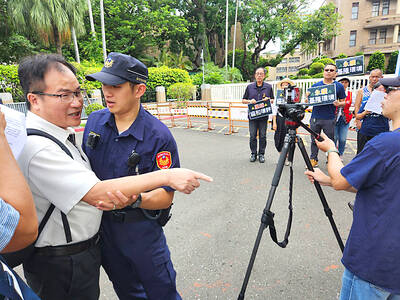
Environmental groups yesterday filed an appeal with the Executive Yuan, seeking to revoke the environmental impact assessment (EIA) conditionally approved in February for the Hsieh-ho Power Plant’s planned fourth liquefied natural gas (LNG) receiving station off the coast of Keelung. The appeal was filed jointly by the Protect Waimushan Seashore Action Group, the Wild at Heart Legal Defense Association and the Keelung City Taiwan Head Cultural Association, which together held a news conference outside the Executive Yuan in Taipei. Explaining the reasons for the appeal, Wang Hsing-chih (王醒之) of the Protect Waimushan Seashore Action Group said that the EIA failed to address